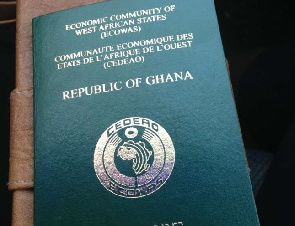Ghana is set to begin the issuance of electronic visas (E-visa) from 2021.
Procurement procedures have started for the selection of a firm to partner the Ghana Immigration Service (GIS) to design and issue E-visas.
The private partner will work between January and May next year to get the system in place, with services available at the Kotoka International Airport (KIA) and any location around the world where a visitor would like to acquire a visa to travel to Ghana.
The partnership is aimed at facilitating the acquisition of the travel documents to the country from any part of the world.
The visa policy reform forms part of the $40 million World Bank-funded Ghana Tourism Development Project (GTDP) disbursed to enhance Ghana’s tourism and hospitality sector and make the country a more attractive destination.
The acting Project Coordinator for the GTDP, Mr Divine Kwame Owusu-Ansah, told the Daily Graphic in an interview in Accra that the measure would facilitate the ease and convenience of acquiring visas to the country.
“We are working with the GIS to set up the E-visa system for the country. We hope to recruit the firm to design, supply, install and build capacity and deploy electronic visa solutions for the Immigration Service by the middle of next year,” he explained.
According to Mr Owusu-Ansah, it was a major priority activity for the sector, under the leadership of the Minister of Tourism, Arts and Culture, Mrs Barbara Oteng-Gyasi, who is also the Member of Parliament for Prestea-Huni Valley.
The visa reform is one of the initiatives under the four components of the GTDP.
The first component is strengthening the tourism enabling environment, which includes upgrading skills in the industry and setting up high quality training institutions for the tourism and hospitality sector.
The others include developing tourism sites and destinations, as well as administering a tourism grant scheme; supporting tourism enterprises and project management and institutional capacity strengthening for the ministry and its agencies to enable them to implement the project and sustain the investments into the future.
Mr Owusu-Ansah also said, following the Cabinet’s approval of the country’s first-ever Hospitality and Tourism Training Policy, the GTDP had shortlisted firms for the next stage of a competitive bidding process to set up skills training institutions to train people for the sector.
The firms, mostly Ghanaian companies, would, at the end of the process, partner reputable international institutions to set up the training facilities in parts of the country to train human capital for the industry.
The policy, he said, was to guide the development of skills set to drive the country’s tourism sector.
He said it was crafted as part of a comprehensive plan to revamp the tourism and hospitality industry to make Ghana an attractive destination for various types of tourism.
Mr Owusu-Ansah said the policy had paved the way for the ministry and its agencies, such as the Ghana Tourism Authority (GTA), to partner private sector firms to develop human capital to world-class standards to deliver services at the facility user level of the tourism and hospitality sector.
He added that the Tourism Ministry, under the GTDP, was working with the Ministry of Aviation to draft a similar policy on training people in the aviation industry.
–Classfm
 Home Of Ghana News Ghana News, Entertainment And More
Home Of Ghana News Ghana News, Entertainment And More




